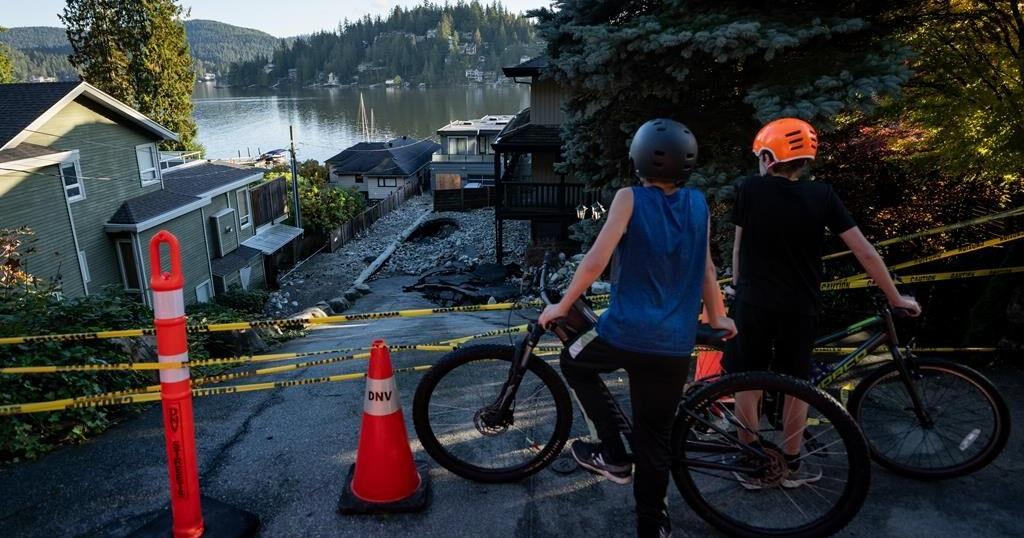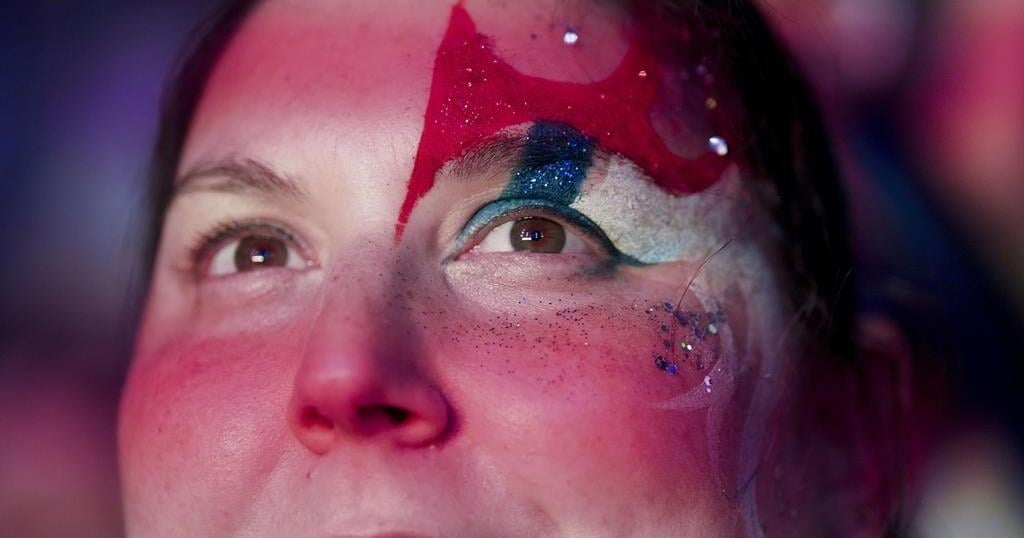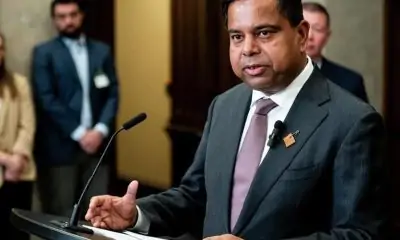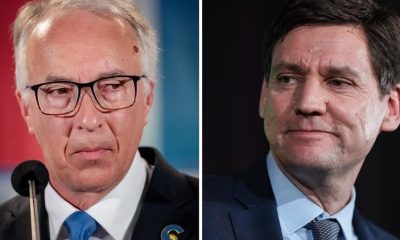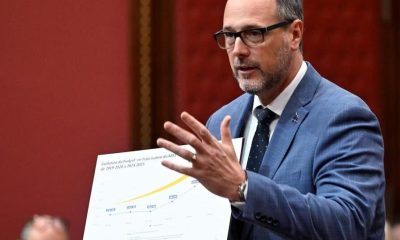MONTEVIDEO, Uruguay (AP) — Voters in the small South American nation of Uruguay picked a new president Sunday in a race between two moderates that defied regional trends of bitter division and democratic erosion.
The contest between Uruguay’s incumbent conservative coalition and its challenger, a center-left alliance, came to a close after some 2.7 million eligible voters also cast ballots for Parliament and a contentious referendum on overhauling the social security system.
Electoral officials reported to local media a turnout of more than 88% by the time polls closed in the country, where voting in presidential and congressional contests is compulsory. Results were expected to be announced within a few hours.
The pension vote — which would expand the fiscal deficit in one of Latin America’s wealthiest countries — has consumed more media attention in recent weeks than other campaign issues, such as child poverty, education and security.
With the candidates in broad agreement over many issues, no one expects the outcome of the presidential vote to herald drastic change in this nation of 3.4 million people, long considered a model democracy and bastion of stability in the region.
“In a way, Uruguay has been boring, but boring in this sense is very good,” said Juan Cruz Díaz, a political analyst who runs the Cefeidas consultancy group in Buenos Aires. “We’ve seen so many dramatic changes in Argentina, Brazil, Ecuador, Colombia and suddenly we face elections in Uruguay in which there is a general consensus, there’s stability.”
While in neighboring Brazil and Argentina, voters recently vented their rage at the status quo, Uruguay’s electorate remains largely satisfied with the government’s business-friendly policies and the economy’s steady growth. The current center-right president, Luis Lacalle Pou, enjoys a 50% approval rating.
The presidential campaigns have played out without the vitriolic insults and personal attacks seen elsewhere, such as the United States, Argentina or Brazil.
The Rambla, a 22-kilometer-long avenue running down the coast of the capital, Montevideo, became a festive gathering spot during the voting day as members of Uruguay’s major conservative and liberal coalitions waved flags and sang songs.
As constitutional term limits bar Lacalle Pou from running for a second consecutive term, the governing party’s candidate is Álvaro Delgado, 55, a congressman and Lacalle Pou’s former chief of staff, who started his career as a veterinarian.
“We voted with joy in a very special election, appreciating this democracy that makes us proud and Uruguay’s spirit of respect and tolerance,” Delgado posted on social media platform X after casting his ballot.
His main challenger is Yamandú Orsi, 57, a center-left former mayor and history teacher with humble roots from the Frente Amplio (or Broad Front) coalition, which governed from 2005-2020 before Lacalle Pou’s victory. The alliance oversaw the legalization of same-sex marriage. Uruguay became the first country to legalize cannabis for recreational use and developed one of the world’s greenest grids, powered by 98% renewable energy.
The latest polls show Orsi in a comfortable lead at 44%, but not winning outright, which would send the country to a run-off on Nov. 24.
Orsi voted in Canelones, the district of cattle and sheep ranches where he served twice as mayor some 50 kilometers (31 miles) from Montevideo. He expressed pride in his country’s faith in democracy, restored in 1984 after a 12-year dictatorship.
“Uruguay has had the happiness for 40 uninterrupted years … the happiness that our citizens can elect their leaders,” Orsi said. “In today’s world, it is a beautiful privilege.”
Orsi has benefited from the support of former President José “Pepe” Mujica, the eccentric former guerrilla who helped spearhead Uruguay’s transformation into the continent’s most socially liberal country during his 2010-2015 presidency.
Now 89, Mujica is battling esophageal cancer, but he still managed to cast his ballot in Montevideo on Sunday. Arriving to vote in a wheelchair, he was quickly swarmed by reporters.
“We need to support democracy, not because it is perfect, but because humans have not yet invented anything better,” he told journalists after exiting the polling station.
Like Mujica, who lives in a modest farmhouse on the outskirts of Montevideo, Orsi says he wouldn’t live in the presidential palace if elected.
In a distant third is Andrés Ojeda, 40, a muscular and media-savvy lawyer who has tried to energize apathetic young voters with splashy campaign videos showing him lifting weights at the gym and describing himself as a classic Capricorn.
He backs the ruling coalition but flaunts an unconventional style that he said draws inspiration from other young charismatic leaders in Latin America wielding social media to amass fans, like El Salvador’s populist Nayib Bukele and Argentina’s radical libertarian Javier Milei.
“It’s a lesson to the system,” Ojeda said of his meteoric rise from obscurity. “The new politics is here to stay.”
The electoral contest has largely focused on the rise in homicides and robberies, with the governing coalition advocating a tough-on-crime approach and the liberal coalition seeking to increase the state’s role in security matters.
Voters are also concerned about the one in five Uruguayan children living in poverty and the low rate of high school graduations.
But the overlap between political platforms has left much of the Uruguayan electorate indifferent.
“It was a presidential campaign far removed from the people that did not achieve the levels of engagement that Uruguay historically has,” said Montevideo-based political analyst Julián Kanarek.
More divisive than the presidential race is the constitutional referendum that would overhaul Uruguay’s social security system.
If approved by more than 50% of voters, the $23 billion scheme backed by the country’s powerful unions would lower the retirement age, boost payouts and transfer Uruguayans’ privately managed savings to a government-run trust.
Both leading candidates have spoken out against the proposal, which has already sent tremors through global markets. Shrugging off the fiscal consequences, supporters say it would redistribute Uruguay’s resources more fairly in one of the region’s most expensive countries where the average minimum pension stands around $450 a month.
“It’s about defending our rights, because now I am about to retire,” Amara De Los Santos, 61, said from a polling station after voting “yes” on the referendum.
___
DeBre reported from Buenos Aires, Argentina



